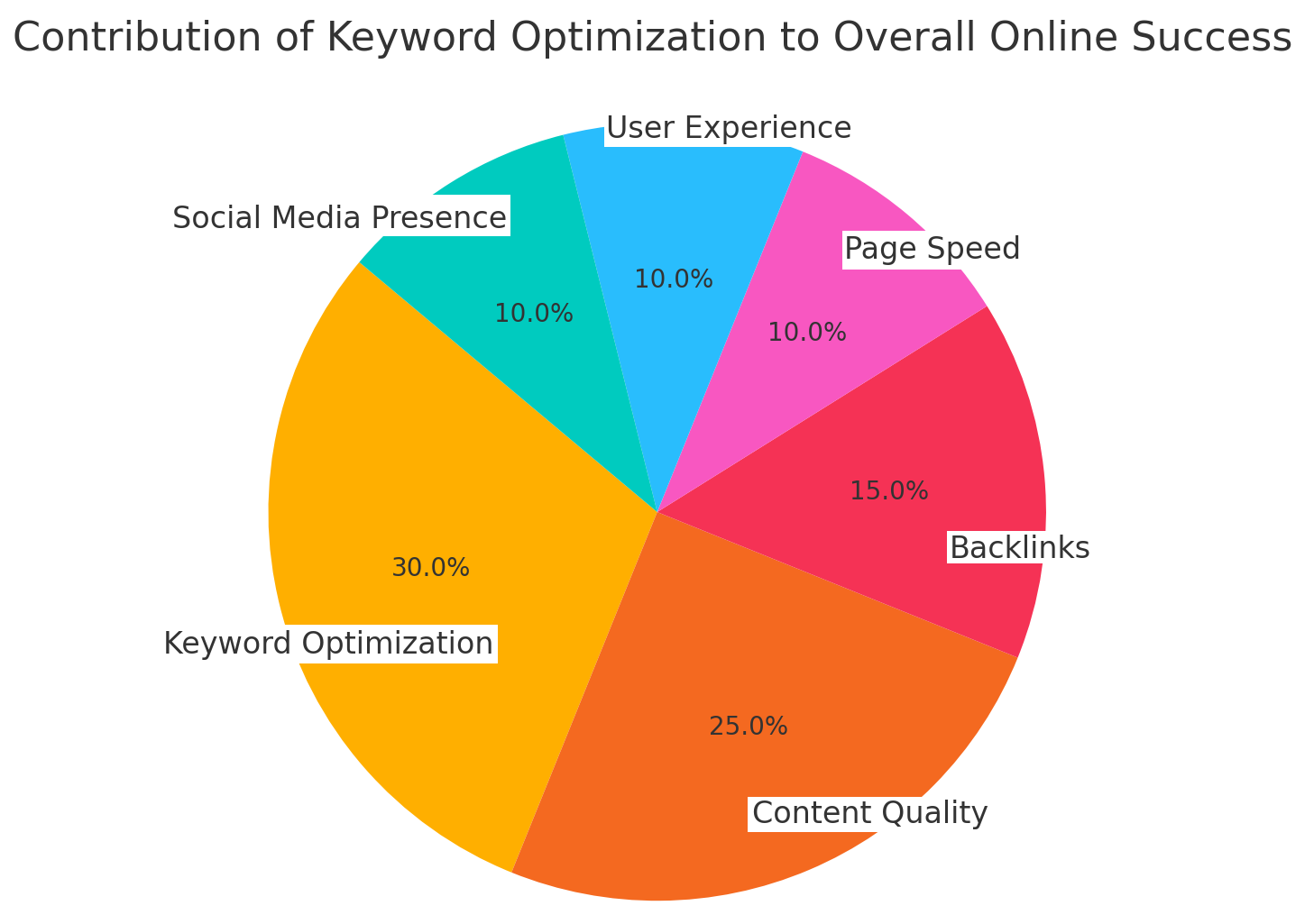Here's Why Your Business Needs a Keyword Strategy for Both On-Page and Off-Page Content
Being found online is essential for every business today. So how do you make sure your company’s website and other content sources stand out for potential customers? The answer is in having a well-planned keyword strategy. Keywords are the lifeblood of any business that promotes itself online. If you're not giving proper attention to keywords - both on your website (on-page) and beyond it (off-page) - you're missing out on major opportunities to attract, engage, and convert prospects.

Let’s break down why keywords are so crucial, where they should appear, and how to use them effectively.
Why Keywords Matter for Your Business
Keywords are the terms and phrases that people type (or speak) into search engines like Google, Bing, Yahoo and others to find answers, solutions, or products. The right keywords on your website connect your business to your ideal audience. If you’re a bakery in Seattle, for example, you’ll want to appear in searches like “Seattle custom cakes” or “best cupcakes in Seattle.”
A well-researched keyword strategy ensures that your business is visible in the searches that matter the most, helping potential customers find you instead of your competitors.
On-Page Keyword Strategy: Where and How to Use Keywords
On-page SEO refers to optimizing the content directly on your website. Here are the key places where your keywords should appear:
Webpage Titles: This is often the first thing a search engine and users see. Titles like "Affordable Custom Cakes in Seattle" can help your page rank and invite clicks.
Meta Descriptions: These short snippets of text (under 160 characters) appear in search results. Including your primary keywords here can improve visibility and click-through rates.
Header Tags (H1, H2, H3): Break your content into sections and use keywords naturally in your headings. For example, an H2 like "Why Our Custom Cakes Are the Best in Seattle" helps users and search engines quickly understand your content.
Body Content: Keywords should appear naturally within the main text. Aim for a keyword density of around 1-2%. This means the keyword appears once or twice per 100 words. Avoid "keyword stuffing," which can hurt your SEO and make content awkward to read.
URLs: Include relevant keywords in your page URLs for clarity and SEO benefit, such as "www.yourbakery.com/seattle-custom-cakes."
Alt Text for Images: Search engines can’t read images, but they can read alternate text. Descriptive keywords in your images' alt text can help boost your SEO, and also help make your content more accessible to visitors with visual impairments.
LSI Keywords: Latent Semantic Indexing (LSI) keywords are related terms that help search engines understand the broader context of your content. For example, if your primary keyword is "custom cakes," LSI keywords might include "wedding cakes," "cake decorating," and "baking services." Including LSI keywords helps diversify your content and improve relevance without keyword stuffing.
Off-Page Keyword Strategy: Going Beyond Your Website
Your online presence isn’t limited to your website. Off-page SEO refers to optimizing your brand presence on platforms like social media, video content, and other websites. Here’s how keywords play a role:
Social Media: Platforms like LinkedIn, Instagram, and Facebook have powerful search functions. Use keywords in your bio, posts, and hashtags to make your content more discoverable. For example, hashtags like #SeattleBakery or #CustomCakes attract local attention.
Video Content: YouTube is the world’s second-largest search engine. Optimize video titles, descriptions, and tags with keywords that people are likely to search for.
Guest Posts and Backlinks: When writing guest articles or getting mentions on other websites, include relevant keywords in the content and anchor text that links back to your site. This helps improve your authority and relevance.
AI Search: With AI tools like ChatGPT and other large language models (LLMs), users are asking more detailed, intent-based questions. Using long-tail keywords in your content (specific phrases like "how to order a custom wedding cake in Seattle") can improve the chances of your content being found and referenced by AI-driven searches.
The Power of Long-Tail and Buyer-Intent Keywords
While short, generic keywords like "bakery" can be extremely competitive, long-tail keywords are more specific and attract users who are closer to making a buying decision. For example:
"Affordable gluten-free wedding cakes in Seattle"
"Where to buy birthday cupcakes in Ballard"
These keyword phrases are specific, and they capture searchers with buyer intent - people who are ready to take action. Including these types of keywords throughout your online content helps convert more visitors into new paying customers.
Keywords and Non-Traditional Search Engines
Today, online search is no longer limited to Google. It's an omni-channel world now. Users are searching on social platforms, video platforms, and AI-driven tools. A robust keyword strategy makes your business more visible across these channels:
AI Search: Conversational AI tools reference keyword-optimized content when answering questions.
Social Media Search: Using keywords in bios, hashtags, and post captions make your brand more discoverable.
Video Search: Optimized video titles and descriptions help you rank on platforms like YouTube and TikTok.
Ignore these channels and you're really limiting your company's online visibility.
Don’t Just Set It and Forget It
Keyword optimization is an ongoing process. Trends, search behaviors, and algorithms change constantly. Regularly review your keyword strategy, update your content, track what’s working, and either fix or get rid of things that aren't.
Neglecting keywords can leave your business invisible to the very people you want to reach. Without strategic optimization, even the best website or social media campaign may fail to convert prospects into new customers, clients, or patients.
A thoughtful keyword strategy ensures your business stays visible, relevant, and ready to connect with those who need your services. Make keyword optimization a habit and you’ll set your business up for success online.
Need help updating your own keyword strategy? Book a free phone chat with me and let's talk.

 Add Row
Add Row  Add
Add 




Write A Comment